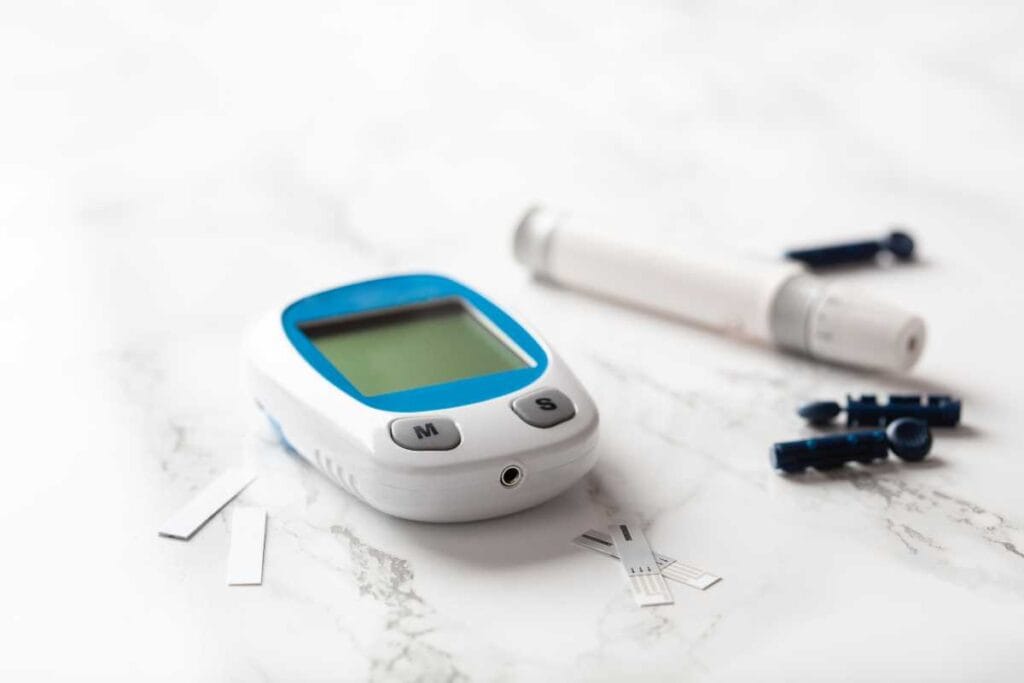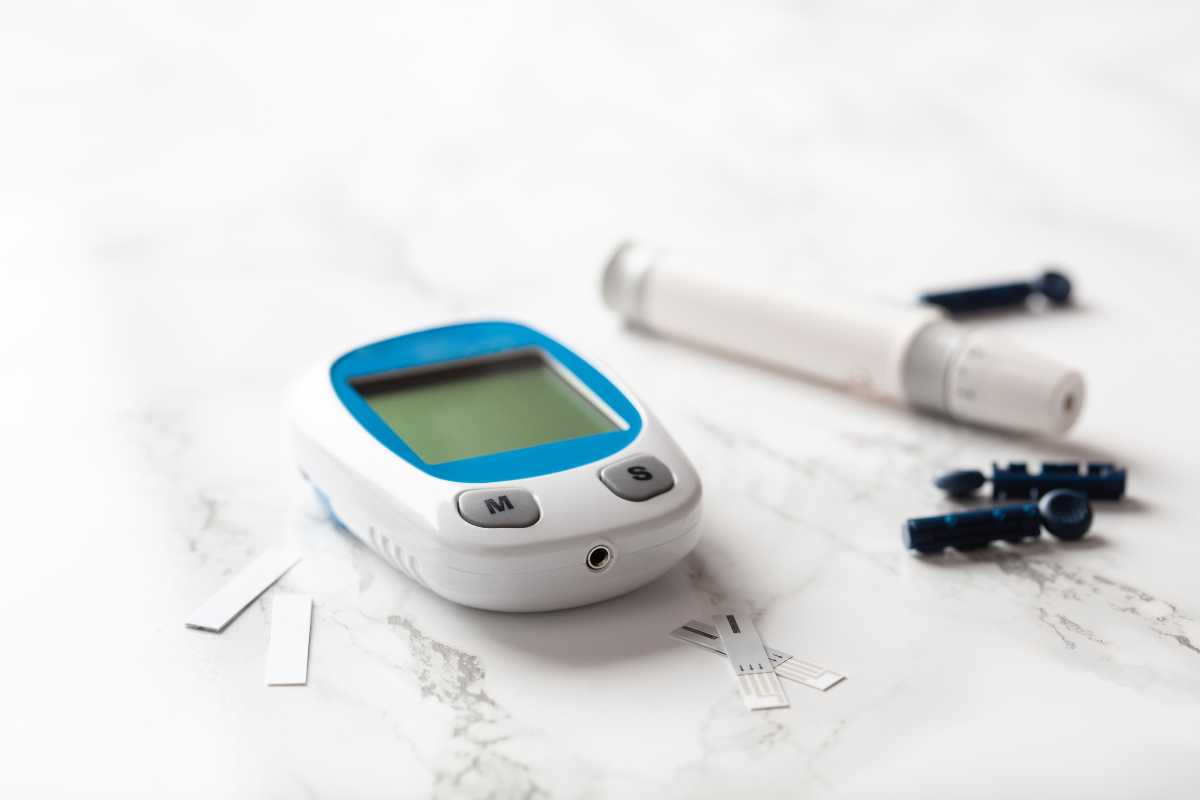Prophetic Medicine for Diabetes: Enhancing Management Strategies
Prophetic Medicine for Diabetes: Enhancing Management Strategies

Prophetic medicine, rooted in the teachings of Prophet Muhammad (peace be upon him), offers a wealth of knowledge on natural remedies for various ailments. For individuals seeking alternative approaches to managing diabetes, prophetic medicine provides holistic solutions that focus on lifestyle modifications and herbal treatments.
By emphasizing prevention and overall well-being, this ancient practice complements conventional medical interventions for diabetes.
Drawing from the wisdom of the Prophet Muhammad (peace be upon him), prophetic medicine recognizes the importance of maintaining a balanced lifestyle.
It encourages individuals to adopt healthy eating habits, engage in regular physical activity, and manage stress effectively. Herbal remedies derived from plants mentioned in Islamic texts are utilized to support blood sugar regulation and promote overall health.
It is worth noting that prophetic medicine should not replace conventional medical treatment for diabetes. Instead, it can serve as a valuable adjunct therapy by addressing underlying causes and promoting general wellness.
By incorporating the principles of prophetic medicine into their lives, individuals with diabetes can take proactive steps towards better management of their condition.
| Food | Effect on Diabetes |
|---|---|
| Sugary drinks | Increases risk |
| White bread, rice, and pasta | Raises blood sugar levels |
| Red meat and processed meat | Increases risk |
| French fries and potato chips | Raises blood sugar levels |
| Sweets and desserts | Raises blood sugar levels |
| Sweetened yogurt | Increases risk |
| Fruit juice | Raises blood sugar levels |
| Alcohol | Increases risk |
| Full-fat dairy products | Raises blood sugar levels |
| Trans fats | Increases risk |
“Explore our latest articles on Prophetic Medicine to discover simple, natural remedies that can improve your health. Check them out now and start feeling better!“
Understanding the Role of Prophetic Medicine in Diabetes Management
Prophetic medicine has long been recognized as an invaluable source of guidance for various health conditions, including diabetes. With its emphasis on holistic well-being, this ancient practice offers valuable insights into managing diabetes effectively.
By incorporating dietary modifications, physical activity, stress reduction techniques, and self-care practices, individuals with diabetes can experience improved glycemic control and overall quality of life.
Prophetic medicine provides guidance on dietary modifications to control blood sugar levels.
One of the key aspects emphasized by prophetic medicine is the importance of a balanced diet in managing diabetes. It encourages individuals to consume foods that are low in sugar and carbohydrates while being rich in nutrients.
This includes incorporating whole grains, lean proteins, fruits, vegetables, and healthy fats into their meals. By following these guidelines, individuals can better regulate their blood sugar levels and reduce the risk of complications associated with diabetes.
It encourages physical activity as an essential component of diabetes management.
Prophetic medicine recognizes the significance of physical activity in managing diabetes effectively. Regular exercise not only helps maintain a healthy weight but also improves insulin sensitivity and promotes cardiovascular health.
Engaging in activities such as brisk walking, cycling, or swimming for at least 30 minutes a day can have numerous benefits for individuals with diabetes. It is recommended to incorporate strength training exercises to build muscle mass and enhance overall metabolic function.
Prophetic medicine promotes stress reduction techniques for better glycemic control.
Stress has a significant impact on blood sugar levels in individuals with diabetes. Prophetic medicine emphasizes the importance of stress reduction techniques such as mindfulness meditation, deep breathing exercises, and engaging in activities that promote relaxation.
These practices help regulate stress hormones like cortisol that can adversely affect glucose metabolism. By incorporating these techniques into their daily routine, individuals can achieve better glycemic control and minimize fluctuations in blood sugar levels.
The integration of prophetic medicine can enhance self-care practices among individuals with diabetes.
Self-care is a crucial aspect of managing diabetes, and prophetic medicine provides valuable insights into this area. It encourages individuals to prioritize their health by adopting good hygiene practices, maintaining regular sleep patterns, and seeking early medical intervention for any health concerns.
It emphasizes the importance of regular monitoring of blood sugar levels and adhering to prescribed medications or insulin regimens. By integrating these self-care practices into their daily routine, individuals can effectively manage their diabetes and prevent complications.
Incorporating the principles of prophetic medicine into diabetes management can have a profound impact on an individual’s overall well-being.
By following dietary modifications, engaging in physical activity, practicing stress reduction techniques, and prioritizing self-care, individuals with diabetes can achieve better glycemic control and lead healthier lives.
The wisdom imparted by prophetic medicine serves as a timeless guide for those seeking holistic approaches to managing this chronic condition.
Exploring the Effectiveness of Prophetic Medicine for Diabetes Treatment
Herbs with Anti-Diabetic Properties
Studies have shown that certain herbs recommended in prophetic medicine may have anti-diabetic properties. These natural remedies can potentially aid in managing diabetes by regulating blood sugar levels and improving insulin sensitivity.
One such herb is bitter melon, also known as Momordica charantia. Bitter melon contains compounds that mimic the action of insulin, helping to lower blood glucose levels.
Research has indicated that consuming bitter melon extract or juice can lead to significant reductions in fasting blood sugar levels among individuals with diabetes.
Another herb commonly mentioned in prophetic medicine is fenugreek. Fenugreek seeds are rich in soluble fiber and have been found to enhance insulin secretion and improve glucose tolerance. In studies involving individuals with type 2 diabetes, fenugreek supplementation resulted in reduced fasting blood sugar levels and improved glycemic control.
Black Seed Oil for Insulin Sensitivity
The consumption of black seed oil has demonstrated potential benefits in improving insulin sensitivity, an essential factor for individuals with diabetes. Black seed oil, derived from Nigella sativa seeds, contains bioactive compounds like thymoquinone that possess anti-inflammatory and antioxidant properties.
Research suggests that black seed oil may help reduce insulin resistance by enhancing cellular glucose uptake and improving pancreatic beta-cell function.
A study conducted on patients with type 2 diabetes found that black seed oil supplementation led to a significant decrease in fasting blood sugar levels and HbA1c (a long-term measure of blood glucose control). Participants experienced improvements in lipid profiles, including reduced total cholesterol and triglyceride levels.
Honey’s Role in Blood Glucose Regulation
Honey, as mentioned in prophetic traditions, may help regulate blood glucose levels when used appropriately. While honey is a natural sweetener containing various sugars, it also possesses beneficial properties such as antioxidants and antimicrobial compounds.
Certain studies have indicated that consuming honey in moderation can lead to a slower rise in blood sugar levels compared to consuming refined sugar.
Moreover, honey has been found to exhibit anti-inflammatory effects and may contribute to wound healing, which is particularly important for individuals with diabetes who are prone to developing foot ulcers. However, it is crucial to note that excessive consumption of honey can still raise blood glucose levels, so moderation is key.
Incorporating Prophetic Foods for Effective Diabetes Management
Incorporating specific foods mentioned in prophetic traditions can aid in managing diabetes effectively. One such food is dates, which are not only a delicious natural sweetener but also provide essential nutrients like fiber, potassium, and magnesium. Dates have a lower glycemic index compared to many other sweet foods, meaning they cause a slower rise in blood glucose levels.
Figs have been highlighted in prophetic medicine for their potential benefits in managing diabetes. Figs are rich in dietary fiber and contain compounds that may enhance insulin secretion. Including figs as part of a balanced diet can help regulate blood sugar levels and provide valuable nutrients.
Furthermore, the consumption of barley has been advocated as a beneficial practice for individuals with diabetes. Barley contains soluble fiber known as beta-glucan, which helps slow down digestion and absorption of carbohydrates. This results in more stable blood sugar levels after meals.
Integrating Prophetic Medicine into Diabetes Care: An Islamic Perspective
Islamic teachings emphasize the importance of seeking both medical and spiritual healing for diseases like diabetes. In Islam, the holistic approach to health encompasses not only physical well-being but also spiritual and emotional balance.
Integrating prophetic medicine aligns with these principles, promoting a comprehensive and balanced approach to diabetes care.
Following the guidelines of prophetic nutrition can contribute to a healthier lifestyle from an Islamic perspective. The Prophet Muhammad (peace be upon him) provided valuable guidance on dietary habits that are beneficial for overall health.
These guidelines include consuming moderate portions, avoiding excessive sugar and processed foods, incorporating natural remedies such as honey and black seed oil, and emphasizing the consumption of fruits, vegetables, and whole grains.
By adhering to these guidelines, individuals with diabetes can effectively manage their condition while staying true to their faith.
Prophetic nutrition encourages a diet rich in fiber and low in refined carbohydrates, which is essential for regulating blood sugar levels. It also emphasizes the consumption of foods with medicinal properties that can help alleviate symptoms associated with diabetes.
Combining modern medical advancements with traditional practices allows Muslims to embrace a comprehensive approach to diabetes care. Medical treatments such as insulin therapy or oral medications prescribed by healthcare professionals play a crucial role in managing diabetes effectively.
However, integrating prophetic medicine offers additional benefits by focusing on preventive measures through dietary modifications and lifestyle changes.
Incorporating physical activity into daily routines is another aspect of prophetic medicine that complements modern diabetes care. The Prophet Muhammad (peace be upon him) encouraged his followers to engage in regular exercise as part of maintaining overall well-being.
Engaging in activities such as walking or practicing martial arts not only helps control weight but also improves insulin sensitivity and cardiovascular health.
Moreover, embracing the spiritual aspects of Islamic teachings can provide solace and strength when dealing with chronic conditions like diabetes. Praying regularly, seeking supplications for healing, and finding comfort in the remembrance of God can have a positive impact on mental and emotional well-being.
This spiritual connection can serve as an additional source of support for individuals navigating the challenges of living with diabetes.
Unveiling the Healing Powers of Prophetic Medicine for Diabetes
Certain herbs recommended by Prophet Muhammad (peace be upon him) possess potential anti-inflammatory properties beneficial for diabetic individuals.
The wisdom of prophetic medicine has long been recognized for its holistic approach to health and well-being. One area where it offers valuable insights is in the management of diabetes. Prophet Muhammad (peace be upon him) recommended the use of specific herbs that have shown promising anti-inflammatory properties, making them beneficial for individuals with diabetes.
One such herb is black seed, also known as Nigella sativa. This tiny seed has been used for centuries in traditional medicine to treat various ailments, including diabetes.
Research suggests that black seed may help reduce inflammation in the body, which is particularly important for people with diabetes as inflammation can worsen insulin resistance and contribute to complications.
Another herb mentioned in prophetic traditions that shows potential benefits for diabetes is fenugreek. These small seeds are rich in fiber and contain compounds that may help lower blood sugar levels.
Studies have found that regular consumption of fenugreek seeds can improve glycemic control and reduce fasting blood sugar levels in individuals with type 2 diabetes.
The use of olive oil, as mentioned in prophetic traditions, has also been associated with improved glycemic control. Olive oil is rich in monounsaturated fats, which are known to have a positive impact on blood sugar levels.
Research suggests that incorporating olive oil into the diet can enhance insulin sensitivity and reduce the risk of developing type 2 diabetes.
Prophet Muhammad (peace be upon him) also advised incorporating barley into the diet, which can contribute to better diabetes management.
Barley is a whole grain that contains high amounts of soluble fiber, making it effective at regulating blood sugar levels. Consuming barley regularly has been shown to improve glycemic control and reduce insulin resistance.
In addition to these specific recommendations from prophetic medicine, it’s important for individuals with diabetes to follow a well-rounded, balanced diet that includes a variety of nutrient-rich foods.
This can help manage blood sugar levels and prevent complications associated with the condition.
It should be noted that while prophetic medicine offers valuable insights, it is not a substitute for medical advice or treatment. Individuals with diabetes should always consult with their healthcare providers and follow their recommended treatment plans.
The Curative Properties of Prophetic Medicine in Diabetes Management
Bitter Melon: A Promising Aid in Reducing Blood Glucose Levels
Prophetic medicine emphasizes the consumption of bitter melon, a fruit that has shown potential in reducing blood glucose levels. This natural remedy is rich in compounds that mimic the action of insulin, the hormone responsible for regulating blood sugar.
Bitter melon contains charantin and polypeptide-p, both of which have been found to lower blood glucose levels effectively.
Research studies have highlighted the effectiveness of bitter melon in managing diabetes. In one study, participants who consumed bitter melon extract experienced significant reductions in fasting blood sugar levels compared to those who did not.
Another study demonstrated that bitter melon can enhance insulin sensitivity and promote glucose uptake by cells, leading to better control over blood sugar levels.
Dates: A Natural Source of Fiber and Essential Nutrients
Dates are recommended in prophetic traditions and offer numerous benefits for individuals with diabetes. These sweet fruits are a natural source of fiber, which plays a crucial role in managing diabetes by slowing down the absorption of sugar into the bloodstream.
The high fiber content helps regulate blood glucose levels and prevents sudden spikes.
Dates contain essential nutrients such as potassium and magnesium that support overall health. Potassium aids in maintaining proper heart function and electrolyte balance, while magnesium contributes to improved insulin sensitivity.
Including dates as part of a balanced diet can provide individuals with diabetes with valuable nutrients while satisfying their sweet cravings.
Regular Physical Activity: An Integral Part of Diabetes Management
Prophetic teachings encourage regular physical activity as an essential component of a healthy lifestyle. Engaging in exercise not only aids weight management but also improves insulin sensitivity.
By increasing physical activity levels, individuals with diabetes can enhance their body’s ability to utilize insulin effectively, leading to better glycemic control.
Physical activities such as brisk walking or cycling stimulate muscle cells to take up glucose from the bloodstream, reducing blood sugar levels. The benefits of exercise extend beyond immediate glucose-lowering effects.
Regular physical activity can also help individuals maintain a healthy weight, reduce the risk of cardiovascular complications associated with diabetes, and improve overall well-being.
Herbal Remedies: Harnessing the Power of Cinnamon
Prophet Muhammad (peace be upon him) recommended herbal remedies like cinnamon for their potential benefits in managing diabetes. Cinnamon has been shown to enhance insulin sensitivity and improve glycemic control by increasing glucose uptake in cells.
It contains bioactive compounds that mimic insulin’s action and aid in regulating blood sugar levels.
Research suggests that consuming cinnamon regularly can lead to significant reductions in fasting blood sugar levels and hemoglobin A1c, a long-term indicator of blood glucose control.
Moreover, cinnamon has antioxidant properties that may protect against diabetes-related complications by reducing oxidative stress.
Incorporating cinnamon into daily meals or beverages can be an enjoyable way to harness its potential health benefits for individuals with diabetes.
By embracing the wisdom of prophetic medicine, individuals with diabetes can explore natural remedies such as bitter melon and dates while incorporating regular physical activity and herbal remedies like cinnamon into their lifestyle.
These practices not only provide additional tools for managing diabetes but also promote overall wellness and improved quality of life.
Harnessing the Wisdom of Prophetic Medicine for Diabetes Control
The wisdom of prophetic medicine offers valuable insights into managing diabetes effectively. By following the practices and recommendations of Prophet Muhammad (peace be upon him), individuals can find holistic approaches to control blood sugar levels, improve circulation, reduce stress, and support overall health.
Intermittent Fasting: A Powerful Tool for Blood Sugar Control
Prophet Muhammad (peace be upon him) practiced intermittent fasting, which has been proven to assist in controlling blood sugar levels. Intermittent fasting involves alternating periods of eating and fasting, allowing the body to regulate insulin production more efficiently.
This practice not only helps manage weight but also supports insulin sensitivity, reducing the risk of developing type 2 diabetes.
Hydration: A Cornerstone of Prophetic Medicine
Adequate hydration is emphasized in prophetic medicine as a fundamental aspect of overall health and optimal diabetes management. Staying hydrated helps maintain proper bodily functions, including regulating blood sugar levels.
Drinking water regularly throughout the day supports kidney function, aids digestion, and promotes healthy circulation—essential factors for individuals with diabetes.
Cupping Therapy: Enhancing Circulation
Prophet Muhammad (peace be upon him) recommended cupping therapy as a means to improve circulation. Individuals with diabetes often face challenges related to poor blood flow due to damaged blood vessels.
Cupping therapy involves placing cups on specific areas of the body to create suction that stimulates blood flow and enhances circulation. This ancient practice can potentially benefit individuals with diabetes by promoting healthier blood flow and reducing complications associated with poor circulation.
Stress Reduction Techniques: Prayer and Mindfulness
Stress plays a significant role in exacerbating symptoms for individuals with diabetes. The teachings of Islam encourage stress reduction techniques such as prayer and mindfulness, aligning both spiritual practices with effective strategies for diabetes control.
Prayer provides solace and tranquility while fostering a deep connection with a higher power. Engaging in regular prayer can help reduce stress levels, which in turn positively impacts blood sugar regulation.
Mindfulness, the practice of being fully present and aware of one’s thoughts and feelings, allows individuals to manage stress effectively. Incorporating mindfulness into daily routines promotes relaxation, lowers cortisol levels, and supports overall well-being.
The Potential of Prophetic Medicine for Diabetes
We have delved into the effectiveness of prophetic medicine for diabetes treatment, highlighting its curative properties and healing powers. We have discussed how to integrate prophetic medicine into diabetes care from an Islamic perspective.
The wisdom of prophetic medicine offers a holistic approach to diabetes management. By combining natural remedies, dietary recommendations, and spiritual practices, individuals with diabetes can potentially experience improved control over their condition.
It is important to note that while prophetic medicine has been embraced by many as a complementary approach to conventional medical treatments, it should not replace professional medical advice or prescribed medications.
As you embark on your journey towards better health with the help of prophetic medicine, remember to consult with healthcare professionals who can guide you in integrating these practices into your diabetes care plan.
By combining evidence-based medical interventions with the wisdom of prophetic medicine, you can take proactive steps towards managing your diabetes effectively.
FAQs
Can I use prophetic medicine as a standalone treatment for diabetes?
Prophetic medicine should be viewed as a complementary approach rather than a standalone treatment for diabetes. While it offers valuable insights and natural remedies that may aid in managing the condition, it is essential to work closely with healthcare professionals to ensure comprehensive care that includes conventional medical treatments and lifestyle modifications.
Are there any specific dietary recommendations from prophetic medicine for diabetics?
Prophetic medicine emphasizes consuming wholesome foods such as fruits, vegetables, whole grains, lean proteins, and avoiding excessive consumption of sugary and processed foods. It encourages moderation in eating habits and promotes regular physical activity as part of a healthy lifestyle.
Is there scientific evidence supporting the effectiveness of prophetic medicine for diabetes?
While some studies have explored the potential benefits of certain herbs and practices mentioned in prophetic medicine for diabetes management, more research is needed to establish their efficacy. It is important to consult with healthcare professionals and rely on evidence-based medical interventions for the treatment of diabetes.
Can everyone with diabetes benefit from prophetic medicine?
Prophetic medicine offers a holistic approach that can potentially benefit individuals with diabetes. However, it is crucial to consider individual circumstances, medical history, and consult with healthcare professionals to determine the suitability of integrating prophetic medicine into your diabetes care plan.
How do I find reliable sources of information on prophetic medicine for diabetes?
When seeking information on prophetic medicine for diabetes, it is essential to rely on reputable sources such as scholarly articles, books written by qualified experts in the field, and trusted Islamic health organizations. Consulting with knowledgeable healthcare professionals who are familiar with both conventional and complementary approaches can also provide valuable guidance.







